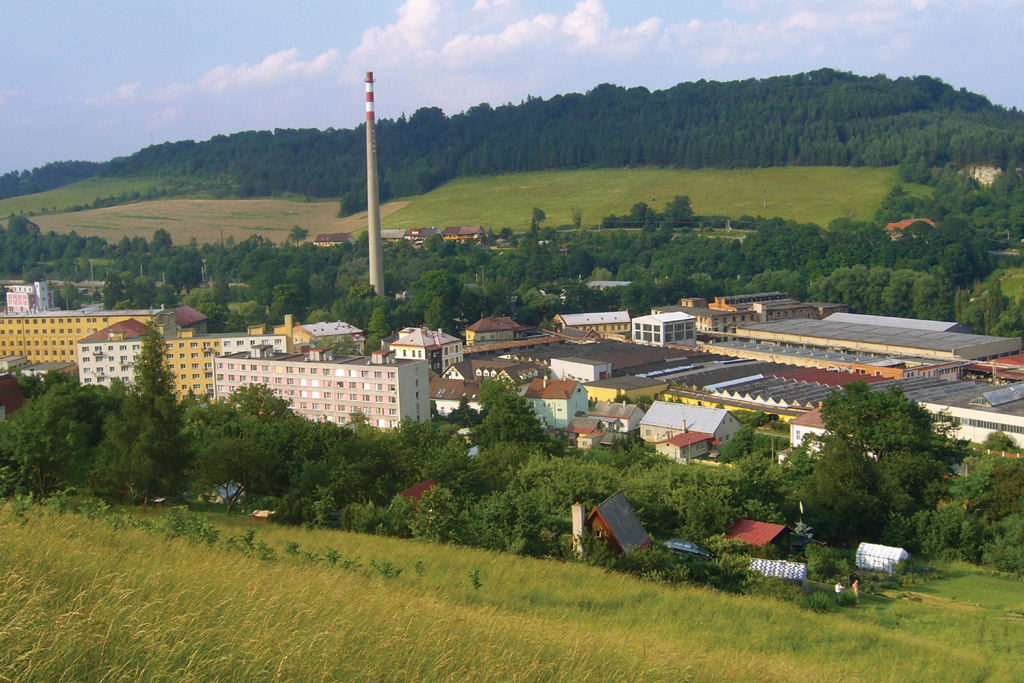Brněnec
Brněnec ( German: Brünnlitz ) is a municipality with 1,384 inhabitants in Okres Svitavy in the Czech Republic. It lies on the River Svitava, which formed the historical border between Bohemia and Moravia, 11 km north of the city Letovice and is the center of the microregion Brněnec.
History
The first mention of the town was made in 1557 in the deed of division the rule Swojanow. In 1892 was discovered during construction work on the road to German Bielau ( Bela nad Svitavou ) near the 1 km west of the village located guest house " New America " ( Nová Amerika ) on remnants of prehistoric pottery. With targeted excavations were laid in 1893 in this cemetery further finds free. In the present in an adjacent mountainside, Quirgellöcher ( Czech Jeskyně Čertovy ) above, crevices and caves were previously remnants of early prehistoric settlements have been discovered.
Brünnlitz received with the construction of the railroad from Prague to Brno a railway station on the main line. In addition to the most important operation, the Daubek mill thereby settled numerous industries.
In Brünnlitz, including the former districts rear water ( Zářečí nad Svitavou, today part of the municipality Březová nad Svitavou ) and lower forest ( Podlesí ) lived in 1930, 606 inhabitants, of which 208 of them had German nationality. 1939 Brünnlitz only 490 inhabitants, cause of this decline was the relocation or emigration of Czechs after the incorporation into the German Reich.
The municipality covered at this time exclusively on the right, Bohemian, bank of Zwitta ( Svitava ). Opposite, on the Moravian side there was the independent village of Moravian Chrostau ( Moravian Chrastová ), which with its suburbs Marienthal ( Marianske Údolí ) Chrostau oil huts ( Chrastová Lhota ) and Pulpetzen ( Půlpecen ) in 1939 1,143 inhabitants possessed and thus more than twice as was as big as Brünnlitz.
The place Brünnlitz belonged to the district court and district Polička and after the Munich agreement was part of the German district Zwittau.
In 1944 Oskar Schindler moved its German enamelware factory (DEF ) including the corresponding bearing with 1,200 Jewish forced laborers from Krakow to Brünnlitz in the local he has purchased munitions factory. They escaped as they are transported to the extermination and were freed on May 10, 1945. Today there are in the community Brněnec 800 jobs.
Community structure
The municipality consists of the villages Brněnec Brněnec ( Brünnlitz ) Chrastová Lhota ( Chrostau oil huts), Moravian Chrastová ( Moravian Chrostau ) and Podlesí (lower forest ) as well as the local documents Drahošov, Marianske Údolí ( Marienthal ) and Sibir.
Sons and daughters of the town
- Frantisek Bartos, composer









